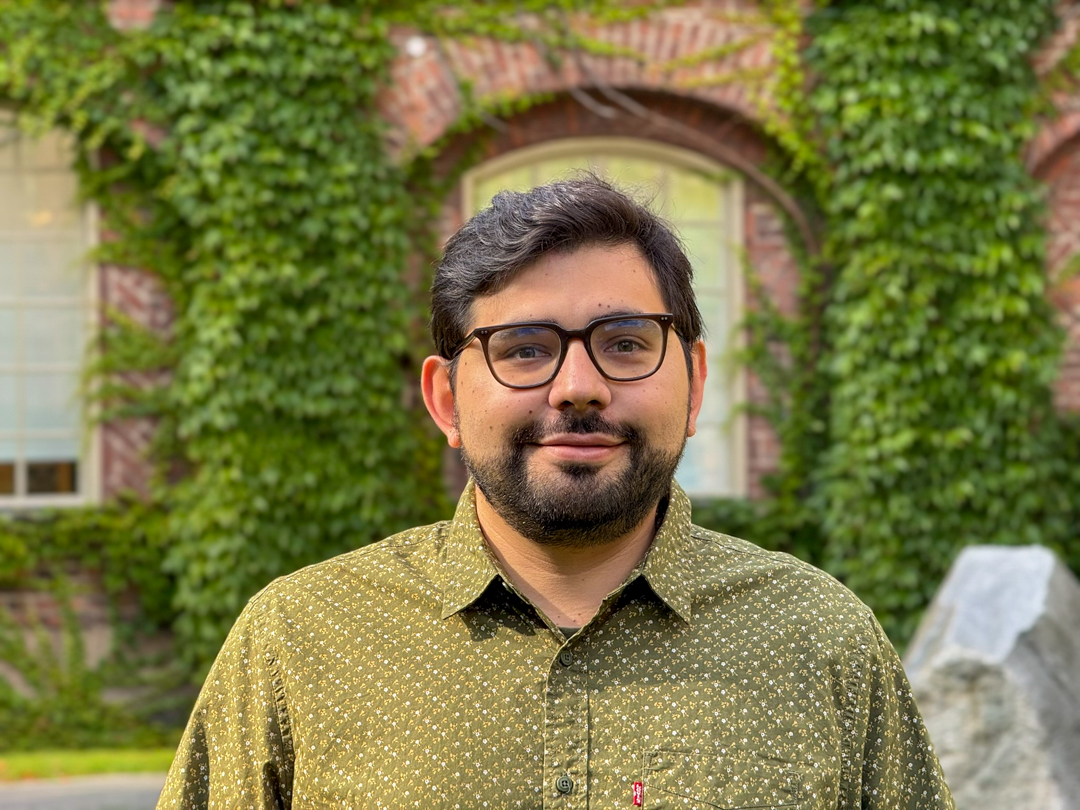Mauricio
Mauricio is from Mexico City, where he earned his degree in Biology from the National Autonomous University of Mexico (UNAM). Passionate about the medical side of biology, he has experience in both academic research and industry. Outside the lab, you’ll often find him hanging out with friends, catching a movie, or enjoying the sunset from Skinnarviksberget. He's also a huge football fan and proudly supports FC Barcelona.

Why did you choose this master’s programme at KTH?
Since the beginning of my studies, I knew I wanted to pursue a master’s degree abroad. Throughout my bachelor’s, I spent a lot of time working in labs at research hospitals around Mexico City, focusing mainly on wet lab techniques and gaining hands-on experience. But when the pandemic hit and labs shut down, I had time to reflect on my strengths and future direction. That’s when I discovered the world of bioinformatics and omics through a series of talks at my university. Listening to scientists discuss how data-driven approaches are transforming biology really stuck with me. I realised that if I wanted to become a well-rounded scientist, I needed to add computational tools to my skillset.
That search led me to the MTLS program, which immediately stood out. It brings together life sciences and technology in a unique, interdisciplinary way. It’s designed for people like me – curious about biology, but eager to explore how data and computation can help solve complex problems. MTLS isn’t just about learning new techniques; it’s about changing the way we think about science.
How is student life in Stockholm?
Student life in Stockholm is really welcoming and full of opportunities to meet people and have fun. The first few months were especially great because THS at KTH organised tons of events—everything from parties and baking nights to hikes and social gatherings.
What makes it even better for MTLS students is that we're also part of events at Karolinska and Stockholm University, so we get to enjoy the best of all three worlds. On top of that, students benefit from useful perks like discounts on groceries and public transportation, which makes living here easier and more affordable.
All in all, Stockholm is a fantastic city to study in – not just for the academics but also for the vibrant and inclusive student community.
What are some of your favourite courses so far?
Although everyone might have different favourites, I’d say my top two courses so far have been Frontiers in Translational Medicine from the first semester and Programming Techniques for Life Sciences in the second.
Frontiers in Translational Medicine is a fascinating course that gives you a broad overview of cutting-edge techniques used to deepen our understanding of diseases. One of the highlights was visiting places like the Zebrafish Core Facility, which really brings science to life. On the other hand, the programming course is fantastic if you want to learn Python from scratch or brush up on coding skills you picked up during your bachelor’s. It’s very hands-on and practical, which makes it easy to follow.
Honestly, all MTLS courses give you relevant, useful skills to develop as a scientist.
What do you want to do after graduating?
The time to decide is approaching quicker than expected, but for now, I’m keeping my options open. I’ve been lucky to gain experience in both academia and industry, and one of the things I really appreciate about the MTLS programme is how well it prepares you for either path. The skills and tools we’re learning are highly adaptable and valuable in many settings.
That said, one thing has always been clear to me: I want to be at the forefront of scientific efforts tackling real-world health challenges. Whether that means working in a research lab, joining a biotech company, or even continuing my studies, I hope my next step allows me to apply what I’ve learned to something meaningful and impactful.
But if I had to give some ideas, I think some of the more realistic options after finishing the programme include pursuing a PhD at one of the three partner universities, landing a research assistant position, or applying to a graduate program like the ones offered by major pharma companies. The great thing about MTLS is that it opens doors in all these directions.
What would you like to say to students thinking of choosing KTH for master's studies?
To anyone still thinking about it, I’d say: join us! KTH and its partner universities are prestigious institutions with amazing communities and tons of opportunities. The MTLS programme is truly international, giving you the chance to meet great people from all over the world and grow professionally no matter what your goals are. On a more personal level, moving abroad to do my master’s here has been one of the most fulfilling adventures of my life. I’ve learned so much about myself and grown in ways I never expected. I hope to see you soon!
